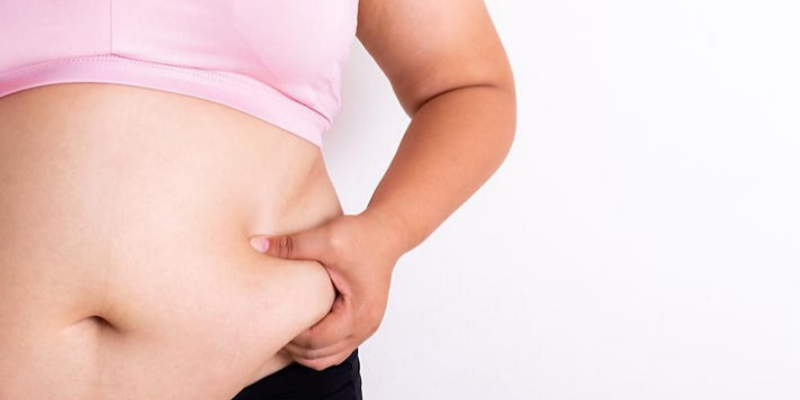Monique Weight Loss Surgery
During the first two weeks following Monique weight loss surgery, you may feel weak and tire quickly. However, modest exercise, such as regular brief walks, is advised. Increase the distance gradually. The more physical activity you engage in, the better. It will help you recover faster and offer you more energy in the long run. Continue to walk at least once a quarter each day until you reach 30 to 45 minutes each day by your sixth week. Unless you have special difficulties with your muscle mass joints, then should really be consistently walking two kilometres a day or more by your seven office visit. Water workouts are advised in this case. These can be started around three weeks following surgery.
During the first few weeks following surgery, you may feel fatigued, weak, or queasy, and you may vomit. Maintain your intake with tiny, regular sips as needed. Every day, we recommend consuming 1.5 to two drinks. You can undertake quick travel as soon as it reaches strong enough too. Do not drive a car until you are no longer using prescription pain relievers, which is generally one week following surgery.
Monique Weight Loss Surgery Journey
Your wound should just require little attention. If sutures were used, they will most likely disintegrate, thus no stitches need to be removed. You could detect some bandage on your wound. This tape is referred to as “steri-strips,” and it should fall off on its own. If surgical staples were used, they will need to be removed, generally on the tenth day following surgery. This should not be painful. It is critical to keep your wound clean and dry regardless of how it was closed to encourage speedier healing. Shower, wash with soap, rinse, and thoroughly dry unless otherwise directed. If the wound is seeping or catching on clothing, use a very light covering to cover it.
It is normally okay to get your incision totally moist after around three weeks. Before taking a bath, get permission from your surgeon. As you gain strength, you may want to go for a swim or bathe in the tub. Even with the best of care, any wound can get infectious. Should your scar becomes reddish, enlarged, oozes pus, has red streaks, orange purulent or odorous discharge, feels progressively painful, or you have a temperature of more than higher than 20 Degrees, you must contact your surgeon immediately. These might be symptoms of an infection. Unless otherwise directed by your medical staff, do not apply any antibiotic ointment or another inotropic medicament to any incision. You may encounter some of the following symptoms, that are considered typical.
Story Of Monique Weight Loss Surgery
Pain or bruising are moderate. Nonetheless, if you develop extreme swelling and bruising, contact your surgeon immediately since this might signal bleeding or infection. Pain or discomfort that ranges from mild to considerable. Please consult your surgeon if the pain gets severe and is not eased by pain medication. When a surgical incision is created, tiny sensory nerves to the skin are occasionally damaged, causing temporary numbness. As the nerve endings repair, sensation in those places normally returns within 2 to 3 months.
Itching and little shooting electrical sensations within the skin are common when nerve endings recover. During the recuperation phase, these symptoms are prevalent. Ice, skin moisturizers, vitamin E oil, and massage are frequently beneficial. All marks are initially crimson, dark pink, or purple in appearance. Scars vanish after roughly a year. It is critical to keep your scars out of the sun for a year following surgery. Even when wearing a bathing suit, sunlight may enter the skin and inflict harm. When exposed to air, use sunscreen with an SPF (Bb cream) and with at most 15.
Nausea can cause by a lack of chewing, feeling full, sensitivity to scents, pain meds, not eating, reply drip, or exhaustion. Nausea is frequently treatable with antiemetics in the first few days following surgery. It is critical that you take your nausea medicine exactly as suggested by your surgeon. Rarely, nausea might be so acute that patients are unable to consume enough drinks. If this occurs, you will need to return to the hospital for intravenous (IV) fluids. Vomiting on a regular basis can create dehydration and electrolyte imbalances, which can lead to nutritional deficiencies.
After Monique Weight Loss Surgery
After surgery, odours might be overpowering. Try smelling a few drops of essential oils on a napkin if you’re experiencing dry heaving. Perfumes and fragrant lotions should be avoided. If you are bothered by food scents, consider having someone else cook your meals or prepare bland items.
Recognize when your stomach is full. This will not occur overnight, but eating slowly will make it simpler. If you’re having trouble drinking because you’re nauseated, try a cup of tea, liquorice tea, decaffeinated iced tea, or hot or cold water without lemon. Sucking on star anise may help relieve nausea in some cases.
“I said I’d share my journey, the weight reduction and becoming healthier, with y’all,” Mo’Nique said in a video. “And today, when I stepped on the scale, I discovered that I’ve weighed more than lbs even when I was 17 years old. Today marked the first time in my adult life that I weighed less than 200 pounds. So I wanted to let you know that it’s doable, that we can do it, and that we can get there.” She clarified that she did not have weight loss surgery.
“It was without surgery, or before meals, or listening to advocates who said, ‘It’s cheap, you can get there.'” It was simply putting in the effort and not giving up on me,” she explained. She posted images of herself on the scale at 198 pounds, her nutritious diet, and even a video of one of her exercises with dance trainer Dwight Holt Jr. “So I’d want to share with you what it looked like on the scale this morning, as well as the goodies that you can consume and still lose weight.” It’s known as raw foods, and it’s also known as dancing your way to weight loss.
Weight Loss Surgery Grants in General
Weight loss surgery grants are a great way to access life-saving medical procedures, particularly for those who may not otherwise be able to afford it. For those interested in researching these types of grants, the internet is a great resource to start with. In addition to researching online, speaking with your healthcare provider or local hospital can also provide valuable insight and resources about grants for weight loss surgery that might be available in your area. Additionally, support groups are another great source for finding out more information about such grants. Support groups often have individuals who have gone through the process of obtaining a grant and can offer insight and advice on how to get started as well as provide emotional support along the way.

Ultimately, there are numerous ways for individuals seeking weight loss surgery grants to pursue their goals; it is just important to do your research prior to making sure you are taking advantage of all available possibilities. Ultimately, patients should talk with their doctor about which one among the different types of weight loss surgery will best meet their needs before committing to pursue financial assistance through a grant program.



